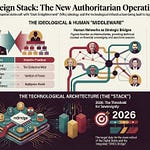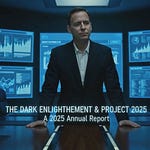In the twilight of the American century, the United States finds itself at a dangerous crossroads—not because it has been overtaken by rising global powers, but because it has been quietly retreating from its own position of influence. The most unsettling aspect? This retreat has not come at the hands of external foes, but from within. Donald J. Trump, through a deliberate erosion of institutions, alliances, and democratic norms, has not just challenged America’s leadership—he has sabotaged it.
For decades, the United States stood as a beacon of stability, democratic values, and innovation. Its leadership was underpinned not just by military might, but by soft power: universities, cultural exports, foreign aid, and a robust rules-based international order. But under Trump, these pillars were attacked or abandoned, hollowing out the very essence of American exceptionalism.
Soft Power as Strategic Capital—Wasted by Design
America's cultural and educational prestige—its “soft power”—has long attracted global admiration. From Hollywood to Harvard, from jazz to NASA, this influence defined global aspiration. But Trump's administration treated these assets as liabilities. He slashed support for student visas, restricted global educational exchanges, and waged war on diversity and inclusion initiatives at universities.
Rick Stengel, former Under Secretary of State for Public Diplomacy, underscored this missed opportunity: “We have more top universities than the next 10 countries combined... and we’re cutting back on them. That’s just stupid.”
Foreign Aid as Influence—Strategically Withdrawn
If China’s global rise is built on infrastructure diplomacy, America’s influence has long been cemented through foreign assistance. Hospitals, clean water, roads, vaccines—these aren’t just humanitarian gestures; they are geopolitical tools. Yet, under Trump, the U.S. Agency for International Development (USAID) and the State Department were systematically defunded.
As Dr. Meera Rap Hooper observed, “If the U.S. wants countries to choose non-Chinese options—we have to put real options on the table.” Instead, Trump offered little more than bluster.
The Retreat from Global Leadership
U.S. diplomats in Africa, Asia, and Latin America found themselves outmatched—not because American values lacked appeal, but because America wasn’t investing in showing up. China was offering superhighways; the U.S. offered lectures on transparency. The State Department was gutted. Multilateral agreements were abandoned. The Paris Agreement, the UN Human Rights Council—discarded.
The result? A global perception shift. The “leader of the free world” became the no-show of the international stage.
Turning the American Century into ‘Little America’
Trump's presidency was not a rupture—it was an accelerant. The slow erosion of U.S. credibility began long before 2016, but under his watch, decline became doctrine. From “America First” to tariffs on allies, from cozying up to autocrats to dismissing NATO, the message was clear: stewardship is out, zero-sum nationalism is in.
Foreign allies recoiled. Global public opinion plummeted. Traditional partners questioned U.S. reliability. Meanwhile, China filled the vacuum—with ports, trade agreements, and a narrative of stable authoritarianism.
The Federal Reserve: From Independent Institution to Political Pawn
Perhaps no institution embodies the integrity of American governance more than the Federal Reserve. It is the firewall against economic volatility, a technocratic body designed to resist short-term political interference. Trump attempted to burn that firewall down.
His repeated attacks on Fed Chair Jerome Powell—whom he appointed—were not about monetary policy disagreements. They were about submission. When Powell refused to slash interest rates for political expediency, Trump resorted to public insults, conspiracy theories, and now, a contrived controversy over building renovations to justify a potential illegal removal.
Legal experts across the spectrum agree: there is no legitimate “cause” for dismissal. But Trump doesn’t need legal precedent—he needs a pretext. And if successful, this political capture would turn the world’s most powerful central bank into a campaign instrument.
Why This Matters
If the Federal Reserve is compromised:
Global markets lose confidence in the dollar.
Interest rates become political tools.
Inflation spirals.
The U.S. becomes indistinguishable from the authoritarian regimes it once criticized.
The politicization of central banks has already devastated countries like Turkey, where presidential manipulation of monetary policy fueled inflation and economic chaos. That’s not hypothetical—that’s precedent.
As Slate’s Mark Joseph Stern noted, “When the president wants to break an institution, all he has to do is invent a pretext.” That is the real danger. The collapse of institutional guardrails doesn’t begin with a coup. It begins with bending laws and norms until they snap.
The Larger Pattern: Institutional Erosion as Strategy
From the State Department to the Fed, from foreign aid to educational exchange, Trump’s approach was clear: dismantle every institution that upholds American global stature—unless it could be personally weaponized.
This isn’t traditional partisanship. It’s not about left vs. right. It’s about rule vs. ruin. Trump governs through spectacle, loyalty tests, and grievance. And in doing so, he has transformed the presidency from a vessel of leadership into a wrecking ball.
Pretexts, Not Policies: The Authoritarian Playbook at Work
Trump’s tactics fit a global pattern. Authoritarians don’t destroy democracies overnight. They hollow them from within. They use the language of reform, legality, and efficiency to justify personal power grabs. They claim to drain swamps, then fill them with loyalists. They identify institutions—judiciaries, central banks, oversight bodies—and twist them into instruments of control.
The attack on the Fed is not an isolated tantrum. It’s a stress test for American democracy. If Trump can remove Powell under flimsy pretenses, he sends a message: no institution is safe from the cult of executive power.
Conclusion: The Battle for American Leadership Is Internal
America’s global decline is not inevitable—it is chosen. With different policies, renewed alliances, and a recommitment to democratic values, the U.S. can reclaim its leadership. But it must first confront the truth: the greatest threat to American exceptionalism is not foreign—it’s domestic.
Donald Trump did not dismantle American leadership overnight. He did it one withdrawn treaty, one weakened institution, one insulted ally at a time. And if this pattern continues unchecked, “the free world” may not recede quietly—it may vanish altogether.











